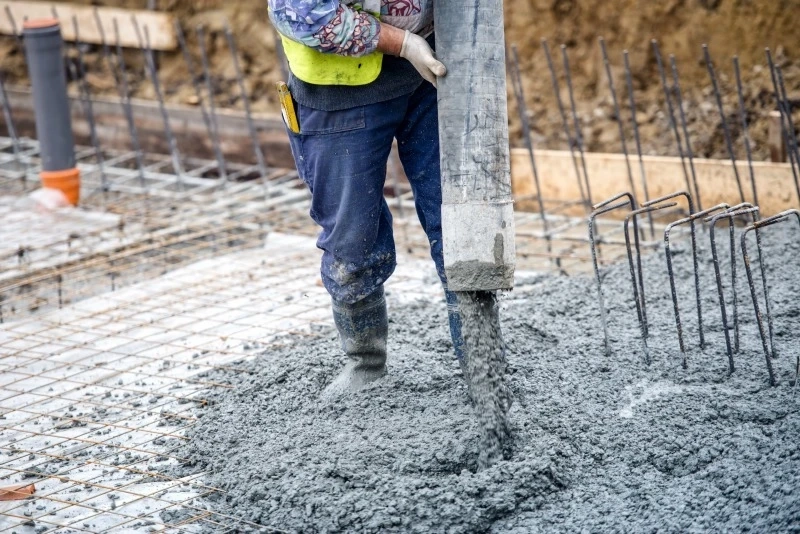Waterproofing is a crucial aspect of protecting any property from the damaging effects of water intrusion. Whether you're looking to safeguard your home or business, the need for waterproofing remains clear. However, the approach to waterproofing is not universal—what works for residential waterproofing may not be suitable for commercial properties. Each type of structure has its unique requirements, making it essential to tailor waterproofing solutions to meet specific needs.
Here are the key differences in home and business waterproofing needs
Residential Waterproofing: A Focus on Comfort and Protection
For homeowners, waterproofing is primarily about maintaining the comfort, safety, and integrity of their living spaces. Residential waterproofing typically focuses on areas such as basements, crawl spaces, and foundations, which are most susceptible to water damage.
In homes, the primary goal is to protect the structure from moisture buildup, mold growth, and potential flooding. Homeowners typically invest in waterproofing systems to prevent water from seeping into living spaces, which could damage personal belongings or create unhealthy living conditions. Solutions such as sump pumps, vapor barriers, and drainage systems are standard and designed to prevent water from entering the interior of the home. In homes, aesthetics and ease of installation are often additional considerations, as homeowners tend to prefer solutions that don't disrupt daily life or compromise the property's visual appeal.
Business Waterproofing: Focus on Longevity and Compliance
In contrast, businesses have more complex waterproofing needs due to the nature of their operations. Commercial properties—whether office buildings, retail spaces, or warehouses—must ensure that their structures remain dry to maintain operational integrity, protect employees and customers, and prevent damage. A water leak in a business can result in costly downtime, damage to inventory, and potential safety hazards.
Business owners often seek waterproofing solutions that offer long-term protection and durability. Commercial waterproofing systems need to be more robust, capable of withstanding higher volumes of water and more intense weather conditions. This might involve larger sump pump systems, exterior waterproofing membranes, and drainage systems built for commercial-scale buildings. Moreover, businesses often have to comply with local building codes and regulations, meaning that waterproofing solutions must meet industry standards and codes for safety and environmental impact.
Waterproofing Basement: Common Ground Between Homes and Businesses
While residential and commercial waterproofing needs differ in many respects, one area where they overlap is waterproofing basement. Both homes and businesses benefit from keeping their basements dry, as water damage to basements can affect structural integrity and lead to serious issues such as mold and mildew.
For residential properties, a basement often serves as additional living or storage space, so waterproofing the basement is crucial in preventing costly repairs and preserving the home's value. On the business side, basements may house critical systems, equipment, or inventory, making them particularly vulnerable to water damage. In both cases, solutions like interior and exterior drainage systems, sump pumps, and moisture barriers are commonly used to prevent water from entering and damaging the basement.
The Importance of Tailored Solutions
It’s clear that both homes and businesses require waterproofing, but the specifics of the job vary significantly. For homes, the emphasis is often on simplicity, cost-effectiveness, and minimal disruption. Homeowners typically seek solutions that blend seamlessly with their living environment and offer long-term protection with minimal ongoing maintenance.
For businesses, the stakes are higher. Waterproofing systems for commercial properties must be durable, scalable, and capable of handling large volumes of water. These systems must be robust enough to minimize any risk to business operations and comply with relevant regulations. Businesses often prioritize solutions that offer efficiency, longevity, and safety while ensuring minimal disruption to day-to-day operations.
Conclusion: Understanding Your Needs
Waterproofing isn't a one-size-fits-all solution because the needs of residential and commercial properties differ significantly. Homeowners typically seek protection from water damage without compromising the aesthetic appeal of their living spaces. In contrast, businesses require heavy-duty, long-lasting solutions to maintain operations and protect valuable assets. Whether you're tackling residential waterproofing or considering solutions for a business, it’s essential to work with experts who can tailor their services to your specific needs, ensuring that your property is protected for the long haul.


